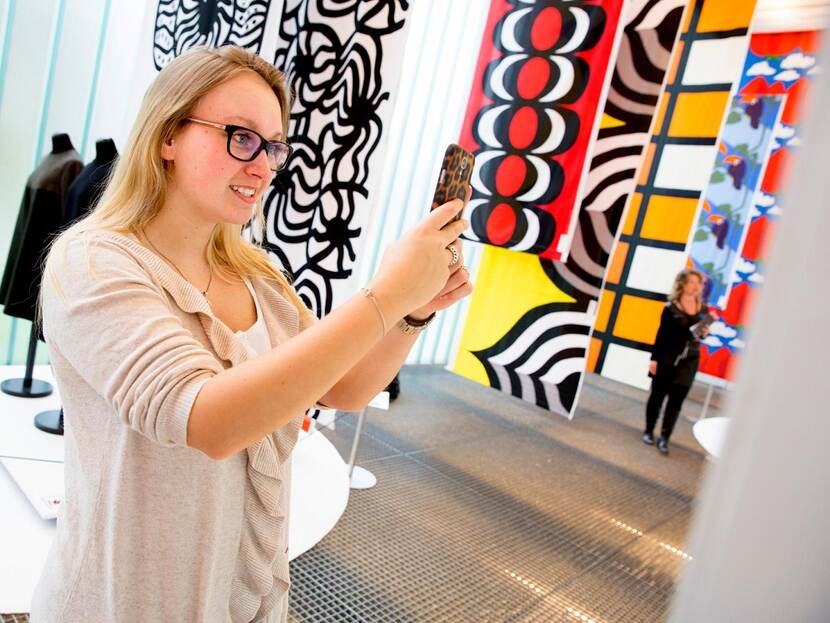Verdere digitalisering van de culturele en creatieve sector biedt kansen voor creatieve vernieuwing en om meer mensen te bereiken en cultureel te inspireren. Ook draagt het bij aan de maatschappelijke relevantie en economische versteviging van de sector. Maar er ligt ook een grote kans voor Nederland om als creatieve hub toonaangevend te zijn in Europa. Dit is het juiste moment om te investeren in een meerjarige strategische digitaliseringsagenda voor cultuur.

Dat staat in een advies van de Raad voor Cultuur aan kabinet, provincies, gemeenten, cultuurfondsen en de culturele en creatieve sector. Het advies wordt vanaf 11:00 gepresenteerd tijdens een online symposium.
Het juiste moment
Digitaal cultuuraanbod ontwikkelt zich tot een steeds waardevollere toevoeging aan de culturele en creatieve praktijk. Nederland heeft een stevige digitale infrastructuur en een innovatieve technologiesector, wat een ijzersterk uitgangspunt oplevert voor de verdere digitale transformatie van de culturele en creatieve sector. Die transformatie is deels al ingezet door toegenomen technologische mogelijkheden. Zij werd versneld tijdens de coronacrisis. Het juiste moment om verder te investeren en de verworven kennis niet verloren te laten gaan is nu.
Uitdagingen
Hiervoor moet nog wel een aantal uitdagingen overwonnen. Zo staat versnippering binnen de sector de nodige samenwerking soms nog in de weg, waardoor het digitale wiel vaker dan eens moet worden uitgevonden. Ook het subsidie-instrumentarium van Rijk, fondsen en decentrale overheden is nog onvoldoende gericht op digitale creatie en productie. Zo wordt bij prestatieverantwoording van subsidiestromen het digitale bereik van cultureel aanbod nog niet altijd meegenomen. Ook wijst de raad op de noodzaak van grote investeringen in digitale productie en distributie van cultureel aanbod.
Samenwerkingslabs en hubs
De raad adviseert het kabinet om bij de ontwikkeling van de meerjarige strategische digitaliseringsagenda vooral in te zetten op samenwerking tussen de culturele en creatieve sector en andere domeinen, zoals technologie, wetenschap en onderwijs. Dit kan door het faciliteren van samenwerkingslabs en -hubs, waar kennis en vaardigheden vanuit diverse invalshoeken worden gecombineerd. Bestaande regionale en lokale kennis- en praktijknetwerken op diverse plekken in Nederland moeten daartoe in kaart gebracht en verstevigd. Grote en kleinere partijen kunnen profiteren van de vliegwielfunctie die deze samenwerking oplevert, zowel op artistiek als maatschappelijk en economisch vlak.
Interactief digitaal platform voor cultuur
Verder adviseert de raad om de mogelijkheden voor een interactief digitaal platform voor cultuur te verkennen en hierin de mogelijkheden van de NPO mee te nemen. Voorkomen moet worden dat de sector volledig is aangewezen op bestaande commerciële platforms, zoals bijvoorbeeld YouTube, waarschuwt de raad. De sector verliest daarmee eigenaarschap.
Digitale vaardigheden
Ten slotte wijst de raad op het tekort aan digitaal vaardig onderlegd personeel, zonder wie de digitale transformatie ondenkbaar is. Hier is echt actie op nodig, te meer omdat banen in de culturele en creatieve sector qua beloning niet kunnen concurreren met andere sectoren. De raad ziet om- en bijscholing in digitale vaardigheden binnen de sector als een kansrijke mogelijkheid. Onlangs maakte staatssecretaris Uslu van Cultuur en Media al een miljoen euro vrij in het kader van Permanente Professionele Ontwikkeling. Dat ziet de raad als een goede eerste stap.
Deskundigencommissie
Het raadsadvies is voorbereid door een commissie van deskundigen uit de culturele en creatieve sector, de wetenschap en het bedrijfsleven, onder voorzitterschap van Ilona Haaijer. Ook Emilie Gordenker, Henca Maduro, Wouter van Ransbeek, Alexander Ribbink, Edo Righini en Liesbet van Zoonen hadden zitting in de commissie.
